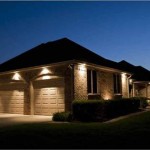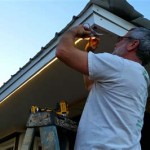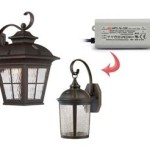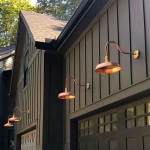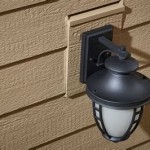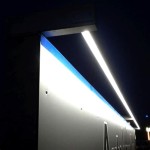Outdoor Lighting Setup Photography
Outdoor lighting setups in photography offer significant creative control over the final image. Understanding the interplay of natural and artificial light sources allows photographers to shape the mood, highlight details, and achieve specific aesthetic goals. This article explores different outdoor lighting setups and techniques for various photography scenarios.
Natural light, while beautiful, can be unpredictable. Photographers must consider the time of day, weather conditions, and the direction of sunlight. The “golden hour,” the period shortly after sunrise and before sunset, is renowned for its soft, warm light. Overcast days provide diffused light, ideal for minimizing harsh shadows and capturing even exposures. Midday sunlight, however, can create strong shadows and high contrast, presenting challenges for portraiture and other genres.
Supplementing or replacing natural light with artificial sources provides additional control. Flash photography, a common technique, involves using a dedicated flash unit or speedlight. These portable devices emit a burst of light synchronized with the camera's shutter, effectively freezing motion and illuminating subjects. External flashes offer adjustable power settings, allowing photographers to balance flash output with ambient light. Bounce flash, a technique where the flash is directed towards a reflective surface like a wall or ceiling, softens the light and creates a more natural-looking illumination.
Continuous lighting, unlike flash, remains on throughout the shoot. This allows photographers to preview the lighting effect in real-time, simplifying the setup process. Common continuous lighting sources include LED panels, tungsten lights, and HMI (Hydrargyrum Medium-arc Iodide) lights. LED panels are known for their energy efficiency and portability, while tungsten lights offer a warm color temperature. HMI lights, often used in filmmaking and professional photography, provide a powerful, daylight-balanced output.
Light modifiers play a crucial role in shaping and controlling light. Softboxes diffuse light, creating a soft, even illumination. Umbrellas, either reflective or shoot-through, provide broader light coverage. Reflectors bounce existing light back onto the subject, filling in shadows and adding highlights. Grids, honeycomb-shaped attachments, restrict the spread of light, creating a more focused beam. Snoots, conical attachments, produce a highly directional spotlight effect.
Understanding color temperature is essential for achieving accurate color representation. Different light sources emit light at varying color temperatures, measured in Kelvin (K). Daylight typically falls around 5500K, while tungsten lights are closer to 3200K. Photographers can adjust white balance settings in-camera or during post-processing to compensate for differences in color temperature and achieve desired color tones.
Specific outdoor lighting setups cater to different photographic genres. For portraiture, soft, diffused light is often preferred, minimizing harsh shadows and flattering facial features. A combination of natural light and a reflector, or a softbox positioned to the side, can achieve this effect. For landscape photography, capturing the existing ambient light is often the primary goal. Graduated neutral density filters can balance exposure differences between bright skies and darker foregrounds.
Product photography in outdoor settings often necessitates careful control over lighting. Continuous lighting setups allow for precise adjustments and real-time previews. Reflectors and diffusers can soften shadows and highlight product details. Background considerations are equally important, with natural elements like foliage or urban landscapes providing context and visual interest.
Night photography presents unique challenges and opportunities. Long exposures capture the ambient light of cityscapes or star-filled skies. Light painting, a technique involving moving a light source during a long exposure, adds creative streaks and highlights to the scene. Using artificial light sources to illuminate specific elements within the composition allows for focused attention and dramatic effects.
Safety precautions are paramount during outdoor lighting setups. Secure light stands and equipment to prevent accidents caused by wind or uneven terrain. When working near water, exercise extreme caution with electrical equipment. Be mindful of the surrounding environment and avoid disturbing wildlife or natural habitats. Planning and preparation, including scouting locations and anticipating potential challenges, contribute to a successful and safe outdoor photography experience.
Experimentation and practice are key to mastering outdoor lighting setups. Trying different light sources, modifiers, and techniques allows photographers to develop their own style and achieve desired artistic results. Analyzing the work of other photographers and studying lighting diagrams can provide valuable insights and inspiration.
Indoor Outdoor Lighting Setups Simple Diagrams For Learning Photography

Pin By David Casimer On Photography Ideas Lighting Setup Portrait Studio

Allison Shelby Lighting Work Setup Dramatic Photography Photo Light

8 Invaluable Tools For Outdoor Photographers On A Sunny Day B H Explora

How To Mix Ambient Light And Fill Flash For Outdoor Portraits

Creative Lighting Techniques For Portrait Photographers Rangefinder

The Best Lighting For Outdoor Photography Focus

Lighting For Outdoor Photo And B H Explora

Westcott University Real Deal Review Quick Portraits With The Rapid Box Duo Studio Photography Lighting Portrait Setup Techniques

Photography Lighting Tips Create A Photo Studio Anywhere
Related Posts

